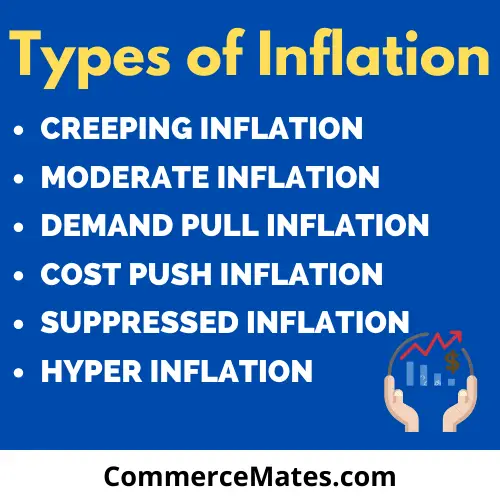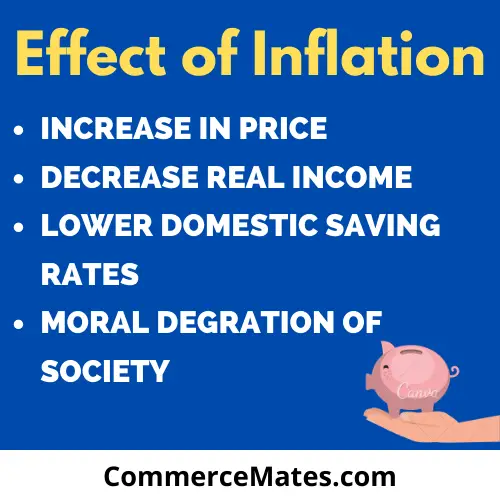Contents
Meaning of Inflation
It is defined as a sustained increase in the general level of prices for goods and services. It is measured as an annual percentage increase. It shows the slowdown of the economy and changing in prices of the goods and service. Inflation is the percentage change in the value of the Wholesale Price Index (WPI) on a year basis.
Formula for Calculating Inflation
(WPI in month of current year-WPI in same month of previous year) .x 100
Types of Inflation in Economics

Creeping Inflation
In creeping inflation prices increase by 2% year, it doesn’t create bad impact on economy. so, slow increase in price is not taken as bad.
Moderate Inflation
In Moderate Inflation prices increase by from 5% to 25-30%. For some countries, the higher part of this range is already high inflation. Moderate Inflation effects the economy and decrease purchase power of the people.
Demand Pull Inflation
Demand Pull Inflation takes place when aggregate demand in an economy outpaces aggregate supply. It involes inflation rising as real gross domestic product rises and unemployment falls. This usually happens when suddenly any specific products demand increase in the market.
Cost Push Inflation
Cost Push Inflation takes places the general price rise (inflation) due to increases in the cost of wages and raw materials. Cost push inflation develops because the higher cost of production factors decreases in aggregate supply ( the amount of total production) in the economy.
Suppressed Inflation
Existing inflation disguised by government price controls or other interferences in the economy such as subsidies. Such suppression, nevertheless, can only be temporary because no governmental measure can completely contain accelerating inflation in the long-run. Also called repressed inflation.
Hyper Inflation
Hyper inflation takes place when the prices increase more than 50% a month. It is fortunately very rare. Infact, most examples of hyper inflation have occurred when the government printed money recklessly to pay for war.
Effect of Inflation on Economy

- Increase in price of good and service: Inflation increases the price of products which decreases the demand of the product and services.
- Decrease real income: When the inflation hit the economy, people started loosing their jobs. Which decrease real income of the people.
- Lower domestic saving rates: At the time of inflation people started spending their savings.
- Moral degration of society: Inflation decreases the moral of the society.